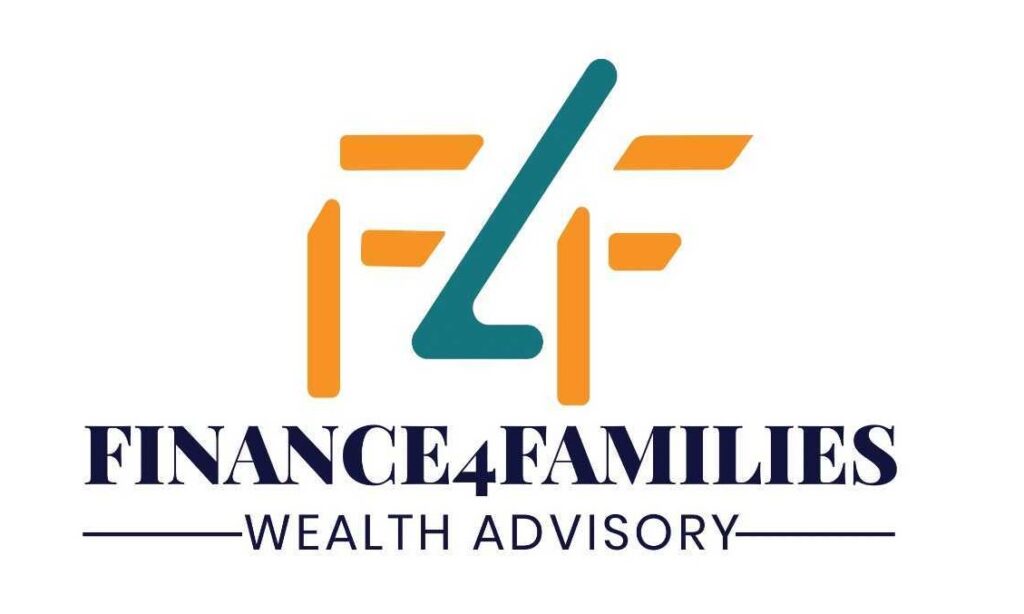“We want to save more this year.”
“Let’s invest as a family.”
“We’re going to budget better, starting this month.”
Sound familiar?
At the start of each year, many families set money goals, but few stick with them. Why? Because most goals are vague, unrealistic, or lack shared buy-in.
At Finance4Families (F4F), we believe that financial confidence starts with honest conversations and goals that fit your real life not your Instagram feed.
So, let’s walk you through how to set realistic financial goals as a family in 2025 and more importantly, how to follow through without burning out or breaking apart.
1. Start with a Family Vision, Not Just Numbers
Before starting to create goals, before jumping into spreadsheets and budgets, pause and ask:
“What does financial peace or success look like for our family?”
Is it:
- Saving for your child’s education?
- Building a home?
- Traveling together debt-free?
- Having an emergency fund that brings peace of mind
When everyone (yes, even the kids!) feels part of the vision, the goals that follow are more personal, more motivating, and more likely to succeed.
💡 F4F Tip: Host a Family Financial Talk. Create space where everyone shares their hopes and priorities for the year.
2. Audit Last Year’s Habits – With Kindness
Before setting new financial goals, take a moment to reflect on the year that was. It’s easy to rush into the next big money move — but without understanding where your money went last year, your goals may end up being just wishful thinking.
Look back at 2024 and ask yourself a few honest but gentle questions:
- Where did most of your money go?
- What unexpected expenses came up?
- Were there any “money leaks” – small spending habits that added up over time?
- What financial decisions worked well?
- Did you meet any of your savings or investment targets?
The goal here isn’t to shame yourself or your family – it’s to learn. Every family has financial blind spots, especially when life gets busy. Maybe school fees took a bigger chunk than expected. Or maybe that December holiday cost more than planned. That’s okay. What matters is that you pause, notice, and plan better going forward.
Treat this audit like looking through a photo album, it’s about seeing the full picture, not picking apart every detail. What patterns do you notice? What would you like to change or continue in 2025?
💡 F4F Tip: A great starting point is to track your expenses from at least 2–3 months last year. Even this small step can highlight your family’s true spending habits and spark helpful conversations.
3. Set SMARTER Family Money Goals
Move from vague to clear using the SMARTER goal method:
Specific – “Save Kshs 100K for school fees” vs. “Save more.”
Measurable – Can you track your progress monthly?
Achievable – Does it match your income and lifestyle?
Realistic – Can the family truly commit to this?
Time-bound – Set a deadline.
Engaging – Is it motivating enough to follow through?
Resilient – Can it adapt when life happens?
📌 Goal Example: “We’ll save Kshs 20,000 monthly as a family from Jan – June toward a Kshs 120,000 education fund.”
4. Assign Roles – Everyone Has a Part to Play
When it comes to family financial goals, don’t leave the responsibility to just one person and definitely don’t leave out the kids!
Involving the whole family, regardless of age, turns financial planning into a shared mission instead of a solo struggle. It’s not about how much someone earns, but about creating ownership, responsibility, and healthy money habits that will last a lifetime.
Start small:
Young children can participate in fun saving challenges using jars or envelopes. Let them see their coins add up, it teaches patience, value, and delayed gratification.
Teens can be tasked with tracking the little money they earn or allowance, planning simple budgets, or contributing ideas to save for family goals like a trip or a new gadget.
Spouses/Partners can divide responsibilities – one tracks bills, another handles investment research, or you alternate leading monthly money check-ins.
This teamwork creates a sense of unity and accountability. It shifts the mindset from “mum or dad handles the money” to “we all play a part in our family’s financial success.”
F4F Coaching Insight: Many of our clients tell us their kids are more disciplined than expected when money is discussed early and openly. It’s a skill and confidence builder that lasts for life.
5. Match Goals to the Right Money Tools
Now that you have your goals, choose the right financial vehicles:
Think of money tools like baskets, each goal needs the right one to grow safely. For example, use a Money Market Fund (MMF) for short-term goals like school fees or emergency savings. For long-term goals like buying land or building wealth, consider bonds, stocks, or real estate.
The right tool helps your money work smarter, not harder and keeps you from dipping into the wrong pot when needs arise.
6. Review Monthly, Adjust Quarterly
Life doesn’t stay the same – and neither should your financial plan.
Salaries can change, emergencies can arise, and family needs evolve. That’s why it’s important to check in with your financial goals regularly, rather than waiting until December to realize things didn’t go as planned. Make it a habit to review your progress once a month. This can be a simple 15–30 minute check-in to ask:
- Are we on track with our savings and spending?
- What financial decisions are working well?
- Are there any habits or expenses we need to adjust?
Then, every 3 months, do a deeper review. This is your chance to pause, reflect, and realign as a family. You might decide to update a goal, increase a contribution, or change direction altogether and that’s okay. Flexibility is key to staying consistent and avoiding burnout.
💡F4F Tip: Treat these reviews like family team meetings not just number-crunching sessions. Make them engaging, talk about progress, celebrate wins, and remind everyone of the shared vision.
“Financial goals don’t succeed because they’re big they succeed because the family behind them is aligned, consistent, and willing to adjust along the way.” – Finance4Families
Remember: Goals Work When the Family Works Together
2025 doesn’t have to be a repeat of years past. You don’t need big income to make big moves, just clarity, consistency, and shared vision.

Ready to Start?
At Finance4Families, we help families like yours move to financial confidence with practical tools, coaching, and support. Here’s how we can help you take action today:
- Book a Clarity Coaching Session – map your financial starting point.
- Join our Investing Roadmap Program – learn to invest with confidence.
- Schedule a Family Financial Talk – start open, honest conversations about money.
📩 Have a question or want support building yours or your family’s financial plan?
We’re just a message away. Email us at hello@finance4families.com and let’s get started.
By Finance4Families | Building Family Wealth, Inspiring Financial Confidence



